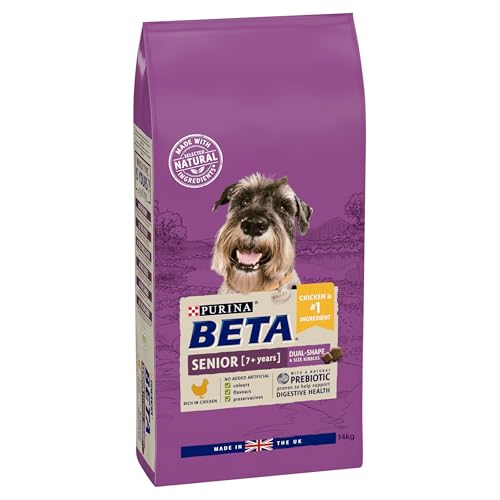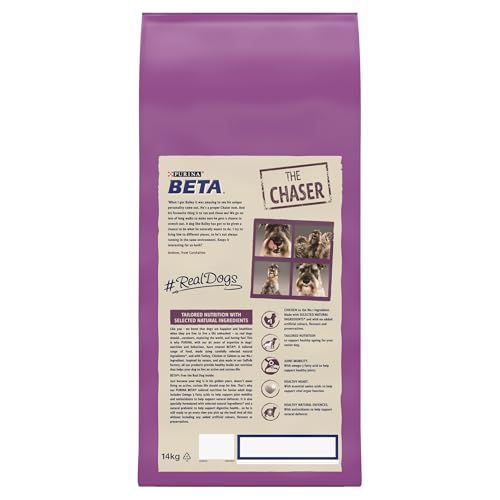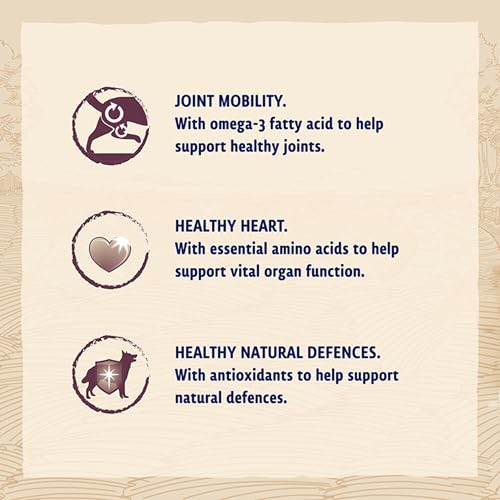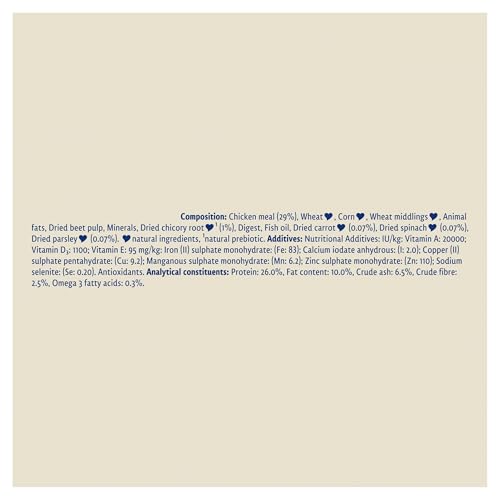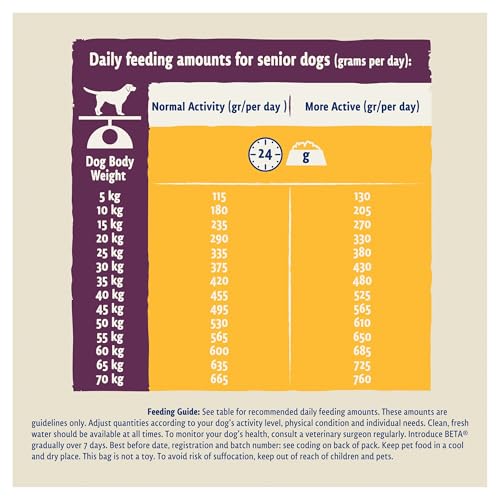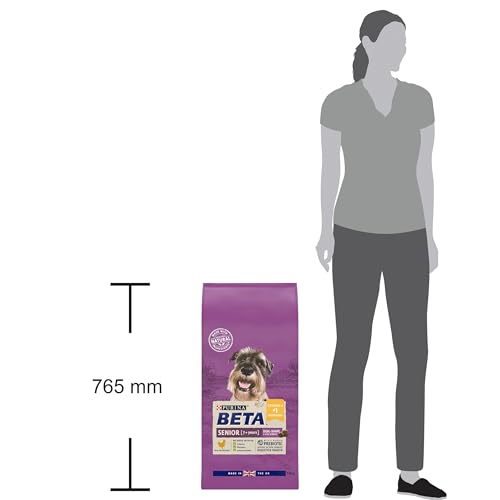
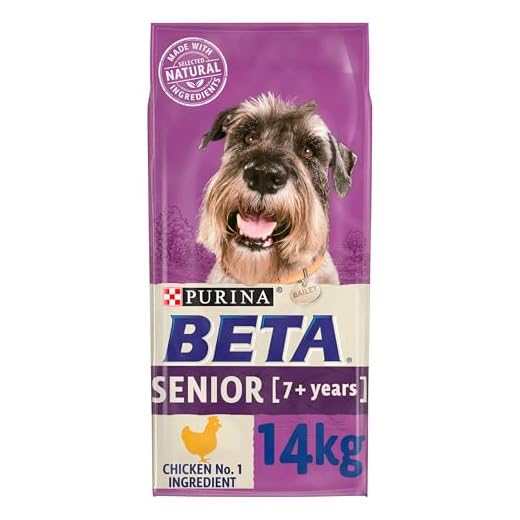



As my loyal canine companion has aged, I’ve noticed significant changes in his dietary needs and preferences. Transitioning from a sprightly pup to a more sedate senior, he requires a different kind of nourishment to maintain his health and vitality. Through extensive research and numerous consultations with veterinarians, I’ve discovered the best foods that cater specifically to the needs of older dogs. In this article, I’ll share my findings and experiences to help you make informed decisions about your own senior dog’s diet.
One of the most important aspects I’ve learned is the necessity of high-quality protein in an older dog’s diet. Senior dogs often experience muscle loss and a decline in energy levels, which can be mitigated by providing them with easily digestible proteins. I found that foods containing chicken, turkey, and fish are particularly beneficial. These proteins not only support muscle maintenance but also ensure my dog remains active and engaged, even in his golden years.
Another crucial consideration is joint health. As dogs age, arthritis and other joint issues become more prevalent. To address this, I’ve incorporated foods rich in omega-3 fatty acids and glucosamine into my dog’s diet. Ingredients like salmon and flaxseed, along with specially formulated supplements, have made a noticeable difference in his mobility and comfort. These additions help to reduce inflammation and support joint lubrication, allowing my old friend to move with greater ease.
Digestive health is another area that requires attention. Senior dogs often have more sensitive stomachs and can struggle with digestion. I’ve discovered that incorporating probiotics and fibre-rich foods like sweet potatoes and brown rice into my dog’s diet helps to maintain a healthy digestive system. These ingredients aid in regular bowel movements and prevent gastrointestinal issues, ensuring my dog feels his best.
In summary, finding the best food for an old dog involves understanding their unique nutritional needs. By focusing on high-quality proteins, joint support, and digestive health, I’ve been able to provide my senior dog with a diet that keeps him healthy and happy. Through this article, I hope to share valuable insights and practical tips that will help you support your beloved pet as they age gracefully.
Best Food for Old Dog: Ensuring Optimal Health
As my faithful companion ages, I’ve come to realise the importance of adjusting his diet to cater to his changing nutritional needs. Ensuring he remains healthy and energetic in his senior years is a priority, and choosing the right food plays a crucial role in this. With so many options available, it’s essential to focus on what will truly benefit an older dog.
Through research and consultation with my veterinarian, I’ve discovered key elements that are vital in the diet of an elderly dog. These include higher protein content, essential fatty acids, and supplements to support joint health. Additionally, considering the caloric intake is crucial to prevent weight gain, which can lead to other health issues.
Key Components of a Senior Dog’s Diet
To ensure my old dog gets the best nutrition, I focus on the following key components:
- High-quality protein: As dogs age, their ability to metabolise protein efficiently decreases. Choosing a food with high-quality, easily digestible protein helps maintain muscle mass and overall strength.
- Healthy fats: Essential fatty acids, like Omega-3 and Omega-6, are crucial for maintaining a healthy coat and skin, as well as supporting cognitive function.
- Joint supplements: Ingredients such as glucosamine and chondroitin can help support joint health, reducing the risk of arthritis and maintaining mobility.
- Fibre: Adequate fibre is necessary to aid digestion and prevent constipation, which can become more common in older dogs.
- Antioxidants: Vitamins C and E, among other antioxidants, support the immune system and can help combat the effects of aging on a cellular level.
Alongside these dietary components, it’s important to monitor the caloric intake of my senior dog. Older dogs are typically less active, so they require fewer calories to maintain a healthy weight. Feeding smaller, more frequent meals can also aid digestion and prevent bloating.
Lastly, ensuring that my dog has access to fresh water at all times is essential. Older dogs are more prone to dehydration, and proper hydration is vital for their overall health and well-being.
By focusing on these key nutritional elements and maintaining regular check-ups with the vet, I can help my ageing companion enjoy his golden years with vitality and happiness. The right diet not only supports his physical health but also contributes significantly to his quality of life.
Understanding the Nutritional Needs of Senior Dogs
As our beloved canine companions age, their dietary requirements undergo significant changes. It’s essential to recognise that senior dogs have different nutritional needs compared to their younger counterparts. These adjustments are necessary to maintain their health, manage age-related conditions, and ensure they enjoy a high quality of life in their golden years.
One of the most important aspects to consider is the need for a balanced diet tailored specifically for older dogs. This means paying close attention to the ingredients and nutrient levels in their food. Older dogs typically require fewer calories due to a decrease in physical activity, but their food must still be rich in essential nutrients to support their aging bodies.
Key Nutritional Considerations for Senior Dogs
When selecting food for an aging dog, several factors need to be taken into account. These include:
- Protein Content: As dogs age, they tend to lose muscle mass. It’s crucial to provide a high-quality protein source to help maintain muscle strength and overall body condition.
- Fats: While older dogs need fewer calories, they still require healthy fats. These fats are essential for energy and maintaining a healthy coat and skin. However, it’s important to avoid excessive fat intake to prevent obesity.
- Fibre: Increased fibre in the diet can aid in digestion and help prevent constipation, which is a common issue in older dogs. Fibre also contributes to maintaining a healthy weight.
- Vitamins and Minerals: Older dogs often need higher levels of certain vitamins and minerals. For example, vitamin E and beta-carotene can support immune function, while glucosamine and chondroitin help maintain joint health.
- Antioxidants: Foods rich in antioxidants are beneficial as they help combat oxidative stress and support overall health and longevity.
In addition to these dietary components, it’s essential to monitor your senior dog’s weight and adjust their food intake accordingly. Regular veterinary check-ups can help identify any specific dietary needs or adjustments required to keep your dog healthy and happy. By paying attention to these nutritional needs, you can help ensure that your senior dog remains vibrant and enjoys their later years to the fullest.
Essential Ingredients for Senior Dog Food
As our canine companions age, their dietary needs evolve to ensure they maintain optimal health and well-being. Selecting the right ingredients for senior dog food is crucial to support their changing bodies and help manage common age-related issues. Here, I want to share my insights on what to prioritise when choosing food for an older dog.
When I look for the best food options for my senior dog, I focus on ingredients that promote joint health, support cognitive function, and maintain a healthy weight. These components are key to ensuring that my dog remains active, alert, and healthy throughout their golden years.
Key Ingredients to Consider
- High-Quality Protein: Older dogs require easily digestible protein sources to maintain muscle mass. Look for foods that list animal-based proteins, such as chicken, turkey, or fish, as the primary ingredient.
- Omega-3 Fatty Acids: Ingredients like fish oil and flaxseed are rich in omega-3 fatty acids, which are essential for joint health and can reduce inflammation. They also support cognitive function, helping to keep your dog’s mind sharp.
- Antioxidants: Senior dogs benefit from antioxidants found in fruits and vegetables like blueberries, spinach, and carrots. These help combat oxidative stress and support overall immune health.
- Glucosamine and Chondroitin: These supplements are vital for maintaining healthy joints and cartilage, especially important for older dogs prone to arthritis or other joint issues.
- Fibre: Adequate fibre from ingredients such as sweet potatoes, pumpkin, and oats aids digestion and helps prevent constipation, a common issue in senior dogs.
- Probiotics: Including probiotics in your dog’s diet can promote a healthy gut microbiome, improving digestion and boosting the immune system.
In addition to these ingredients, it is important to monitor your dog’s caloric intake to prevent weight gain, which can exacerbate health issues like joint pain and diabetes. By carefully selecting food with these components, I ensure my senior dog enjoys a balanced, nutritious diet tailored to their specific needs.
Best Commercial Dog Foods for Elderly Dogs
As our beloved canine companions age, their nutritional needs change significantly. Ensuring they receive the right balance of nutrients is crucial for maintaining their health and quality of life. Selecting the appropriate commercial dog food can be a daunting task with the myriad of options available on the market.
In this guide, I’ll share my insights on some of the best commercially available dog foods specifically formulated for older dogs. These products are designed to support joint health, enhance digestion, and provide the necessary vitamins and minerals that ageing dogs need.
Recommended Commercial Dog Foods for Senior Dogs
When choosing food for an elderly dog, it’s essential to consider ingredients that support joint health, digestive efficiency, and overall vitality. Below, I’ve outlined some commercial options that stand out.
- Royal Canin Size Health Nutrition Maxi Ageing 8+: This product is tailored for large breed senior dogs. It contains nutrients that support healthy ageing, including antioxidants and EPA/DHA for joint health.
- Hill’s Science Diet Senior Dog Food: Known for its high-quality ingredients, this brand offers a variety of formulas for different sizes and dietary needs. Their senior dog food includes a balanced blend of nutrients to support heart and kidney health.
- Blue Buffalo Life Protection Formula Senior Dog Food: This formula features real meat as the first ingredient, along with wholesome whole grains, garden veggies, and fruit. It also contains glucosamine and chondroitin to support joint health and mobility.
Choosing the right food for your ageing dog involves considering specific dietary needs and any health concerns they may have. It’s always best to consult with your veterinarian to ensure that the food you select meets all the nutritional requirements of your senior pet.
Homemade Dog Food Recipes for Older Dogs
Caring for an elderly dog requires special attention, particularly when it comes to their diet. As our furry friends age, their nutritional needs change. Making homemade meals for your senior dog ensures they get the essential nutrients tailored to their specific health requirements. I’ve found that preparing food at home not only gives me peace of mind but also brings immense joy to my dog’s life.
Older dogs often need a diet lower in calories but rich in protein, fibre, and essential vitamins. Crafting these meals allows me to control the ingredients and adjust them based on my dog’s preferences and health conditions. Below, I’m sharing some of the recipes that have worked wonders for my senior canine companion.
Simple and Nutritious Recipes
Chicken and Rice Delight
- 2 cups of cooked brown rice
- 1 cup of boiled chicken, shredded
- 1/2 cup of finely chopped carrots
- 1/4 cup of peas
- 1 tablespoon of olive oil
Mix all the ingredients together in a large bowl. This meal is gentle on the stomach, easy to digest, and provides a balanced mix of proteins and carbohydrates.
Beef and Vegetable Medley
- 1 cup of lean ground beef, cooked and drained
- 1 cup of sweet potatoes, cooked and mashed
- 1/2 cup of green beans, chopped
- 1/2 cup of spinach, finely chopped
- 1 tablespoon of flaxseed oil
Combine the cooked beef with the vegetables and mix in the flaxseed oil. This recipe is rich in protein, fibre, and essential fats, promoting healthy joints and a shiny coat.
Turkey and Quinoa Feast
- 1 cup of cooked quinoa
- 1 cup of ground turkey, cooked
- 1/2 cup of broccoli, steamed and chopped
- 1/4 cup of pumpkin puree
- 1 tablespoon of fish oil
Stir all the ingredients together thoroughly. This dish is packed with antioxidants, vitamins, and omega-3 fatty acids, beneficial for maintaining overall health and cognitive function.
Preparing these meals is simple and can be done in batches, saving time while ensuring my dog gets the nutrition they need. Adjusting the portions based on your dog’s size and activity level is crucial. Always consult with your veterinarian before making any significant changes to your dog’s diet, especially if they have specific health concerns.
Foods to Avoid for Senior Dogs
As a responsible pet owner, I’ve learned that certain foods can be harmful to my aging canine companion. These items may have adverse effects on their health and should be strictly avoided.
Firstly, I’ve come to understand that high-fat foods can be problematic for older dogs. These can strain their digestive system and potentially lead to pancreatitis. Therefore, I make sure to steer clear of fatty meats, fried foods, and excessive amounts of cheese.
- Chocolate: I am aware that chocolate contains theobromine, which is toxic to dogs. Even small amounts can lead to symptoms ranging from vomiting to seizures, so I keep all chocolate products safely out of reach.
- Onions and Garlic: Both onions and garlic, whether raw, cooked, or powdered, can cause damage to a dog’s red blood cells, leading to anemia. I ensure that any human foods I prepare are free from these ingredients.
- Grapes and Raisins: Despite being healthy for humans, grapes and raisins can cause kidney failure in dogs. Recognizing this, I make sure to keep any dishes containing these fruits away from my senior dog.
In addition to these specific items, I’m mindful of the importance of avoiding anything with artificial sweeteners like xylitol, which can be extremely toxic to dogs. By prioritizing my senior dog’s nutrition and being vigilant about what they consume, I can help ensure they enjoy a long and healthy life.
Transitioning Your Canine Companion to Senior Dog Food
As your loyal companion ages, their dietary needs evolve, necessitating a transition to senior dog food. This shift requires careful consideration and a gradual adjustment process to ensure your dog’s health and well-being.
First and foremost, consult with your veterinarian before initiating any dietary changes. A professional assessment of your dog’s health status and nutritional requirements will guide the transition process effectively.
Gradual Transition Steps:
- Blend for Balance: Start by mixing small portions of the new senior dog food with their current food. Begin with a ratio of 25% new food to 75% old food to ease their digestive system into the transition.
- Monitor and Adjust: Observe your dog’s response to the new diet. Look for any signs of digestive discomfort or allergic reactions. If necessary, adjust the ratio of old to new food accordingly.
- Slow and Steady: Over the course of one to two weeks, gradually increase the proportion of senior dog food while decreasing the amount of their previous food. This gradual transition minimizes the risk of digestive upset and allows your dog to acclimate to the new diet comfortably.
- Stay Consistent: Maintain consistency in feeding times and portions throughout the transition process. Consistency helps regulate your dog’s digestion and ensures a smooth adjustment to their new food.
Remember, every dog is unique, and the transition period may vary based on individual needs and preferences. Patience and attentiveness are key as you navigate this important dietary change to support your aging companion’s health and vitality.
Tips for Feeding Senior Dogs with Health Issues
Feeding a senior dog with health issues requires special attention and care to ensure they receive adequate nutrition while managing their specific health conditions. Here are some valuable tips to keep in mind:
1. Consult with Your Veterinarian: Before making any dietary changes for your senior dog, consult with your veterinarian. They can provide valuable insights tailored to your dog’s specific health needs and advise you on the best feeding practices.
- Discuss any existing health issues your senior dog may have, such as arthritis, kidney disease, or dental problems.
- Your vet can recommend suitable diets or supplements to address these issues while ensuring your dog receives essential nutrients.
2. Choose Quality Senior Dog Food: Opt for specially formulated senior dog food that is designed to meet the nutritional needs of aging dogs. Look for options that contain high-quality protein, essential fatty acids, vitamins, and minerals.
- Senior dog food typically has fewer calories to help prevent weight gain, which is common in older dogs with decreased activity levels.
- Consider selecting a formula with added glucosamine and chondroitin to support joint health in senior dogs with arthritis.
3. Monitor Portion Sizes: Keep a close eye on your senior dog’s portion sizes to prevent overfeeding or underfeeding. Adjust the amount of food based on their activity level, weight, and any health conditions.
- Divide their daily food intake into smaller, more frequent meals to aid digestion and prevent stomach discomfort.
- If your senior dog is overweight, work with your vet to create a weight management plan that includes portion control and regular exercise.
4. Consider Supplements: In addition to a balanced diet, your senior dog may benefit from certain supplements to support their overall health and manage specific conditions.
- Omega-3 fatty acids can help reduce inflammation and support brain function in senior dogs with cognitive decline.
- Probiotics may promote digestive health and alleviate symptoms of gastrointestinal issues.
By following these tips and working closely with your veterinarian, you can ensure that your senior dog receives the nutrition they need to thrive and enjoy their golden years comfortably.
Best Food For Okd Dog
Features
| Part Number | 436177 |
| Model | 436177 |
| Size | 11.5 kg (Pack of 1) |
| Price history for Crave Turkey & Chicken Dry Dog Food | |
|---|---|
|
Latest updates:
|
|
Features
| Part Number | 12231689 |
| Model | 12531980 |
| Color | transparent |
| Release Date | 2014-05-23T00:00:01Z |
| Size | 1 count (Pack of 1) |
Features
| Part Number | FD10030KK1 |
| Model | FD10030KK1 |
| Color | red |
| Size | 12.5 kg (Pack of 1) |
Features
| Is Adult Product | |
| Release Date | 2025-05-17T00:00:01Z |
| Language | English |
| Number Of Pages | 213 |
| Publication Date | 2025-05-17T00:00:01Z |
Features
| Is Adult Product | |
| Release Date | 2025-04-14T00:00:01Z |
| Language | English |
| Number Of Pages | 240 |
| Publication Date | 2025-04-14T00:00:01Z |
Features
| Part Number | 29046 |
| Model | 02SKFTLS |
| Warranty | 1 year manufacturer |
| Size | 1 count (Pack of 1) |
| Language | English |
| Price history for Skinner's Light & Senior Dog Food | |
|---|---|
|
Latest updates:
|
|
Video:
What is the best food for an old dog?
The best food for an old dog typically includes ingredients that are easily digestible and provide balanced nutrition to support their aging bodies. Look for senior dog formulas that contain high-quality proteins, healthy fats, and supplements like glucosamine and chondroitin for joint health.
Should I consider any dietary restrictions for my old dog?
Absolutely. As dogs age, they may develop certain health conditions or sensitivities that require dietary adjustments. Consult with your veterinarian to determine if your old dog requires a specialized diet, such as low-fat or low-protein, to manage conditions like kidney disease or obesity.









